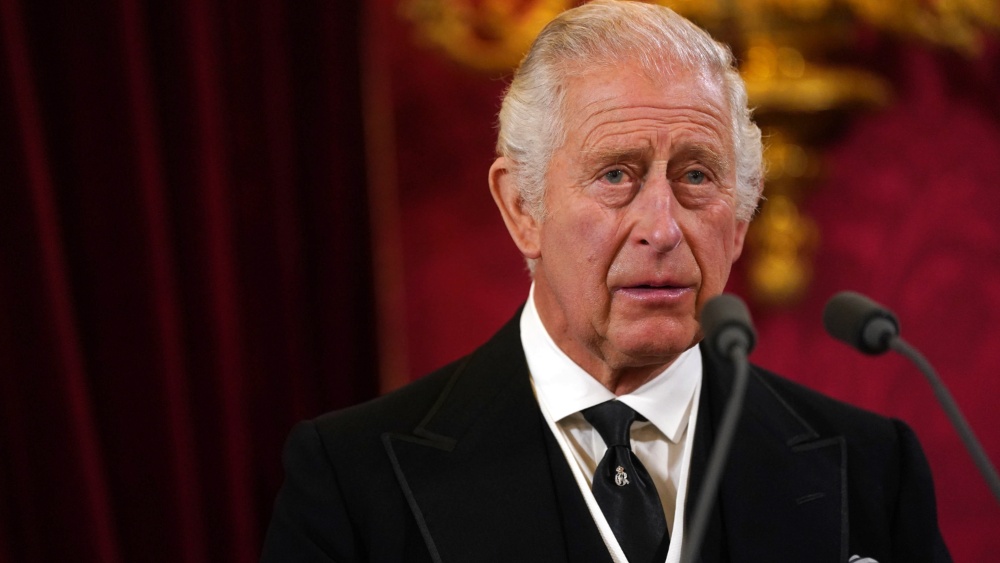Is the U.K. feeling royal fatigue? With three major royal events landing in the past 24 months — Prince Philip’s funeral in April 2021, followed by the Platinum Jubilee and Queen Elizabeth’s funeral in 2022 — the coronation of King Charles III on May 6 is dividing the nation.
The coronation arrives in a period of reflection about the monarchy and its place in modern British society, not to mention the optics of staging a ceremony replete with pomp and splendor while ordinary people are grappling with a cost-of-living crisis.
That makes it tricky for U.K. broadcasters to strike a balance between covering a historic event and serving diverse programming. When Prince Philip died, the BBC’s blanket coverage generated so many complaints that the broadcaster had to set up a dedicated hotline to field them.
Perhaps because of the respect Queen Elizabeth commanded, there were fewer grumblings about the coverage of the Platinum Jubilee last June or during her funeral in September. Still, Paramount Global-owned Channel 5 drew praise from some quarters for being the only British public service broadcaster to eschew coverage of the queen’s funeral entirely, opting instead to air “The Emoji Movie.” (On the day of the coronation the network is sticking to its regular Saturday morning kids programming, including episodes of “Peppa Pig” and “SpongeBob SquarePants.”)
Charlotte Moore, chief content officer at the BBC, acknowledges it’s a challenge to appease all viewers during national occasions. “There’s lots of choice for those who don’t want to [watch] but we see this as a huge honor that we’ll be covering this event,” she tells Variety.
As well as transmitting the two-hour coronation across the world, the BBC is producing and broadcasting a celebratory concert from Windsor Castle the following evening, featuring Katy Perry and Lionel Richie. (Indicative of the polarized attitudes about the coronation, rumors have swirled that several British stars, including Adele and Ed Sheeran, turned down the opportunity to take part, although Tom Cruise and Winnie the Pooh are confirmed to appear.) For those who do want to watch, the broadcaster will offer closed captioning and audio description, as well as ultra HD broadcasts.
Comcast-owned Sky News is also planning robust coverage, setting up studio hubs across the road from Buckingham Palace, where the procession will begin, and opposite Westminster Abbey, where the king and his wife, Queen Camilla, will be crowned. Sky News reporters will also be stationed around the country to catch the public’s joy — or discontent. “If there are demonstrations or protesters, we’ll make sure [their] voices are heard,” says Sarah Whitehead, Sky’s deputy head of newsgathering.
Whitehead says she’s looking forward to witnessing history come to life. “This is a moment of extraordinary spectacle,” she says. “The pomp and pageantry around it will be amazing.”
Channel 4, which has always boasted an anarchic streak, is leaning into a more anti-royalist sentiment with a weekend of programming that includes an unscripted special titled “Frankie Boyle’s Farewell to the Monarchy” and a rerun of the comedy “Prince Andrew: The Musical,” as well as a documentary about the king’s disgraced younger brother.
“Channel 4 is here to provide an alternative voice, so on the day of the coronation we’ll be offering viewers the chance to watch something different,” says Alisa Pomeroy, the network’s head of documentaries.
King Charles is certainly aware he has big shoes to fill in the eyes of his subjects and has planned accordingly: He’s scaled down the ceremony (it will clock in around an hour shorter than his mother’s) and, according to reports, ensured Prince Andrew has no official role in the proceedings. As a sweetener, Britons will also enjoy an extra day off from work.
As the BBC’s Moore points out, regardless of people’s personal feelings about the monarchy, Britain’s first coronation in 70 years represents a historic moment: “I don’t think it’s about whether you’re a royalist or not. This is a once-in-a-generation event.”


